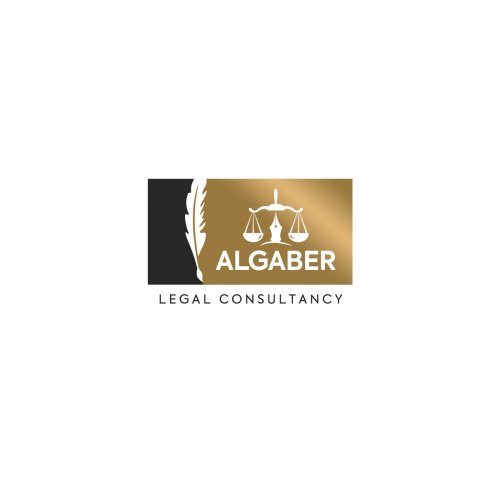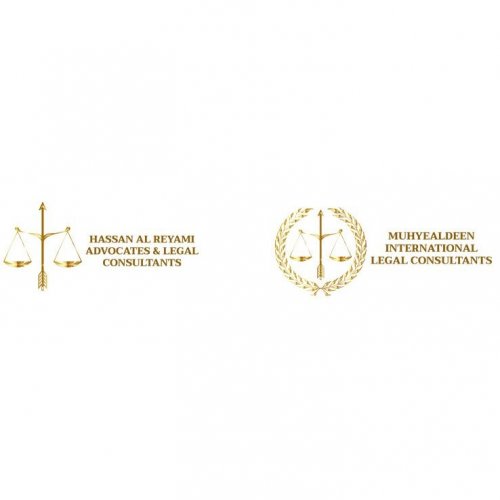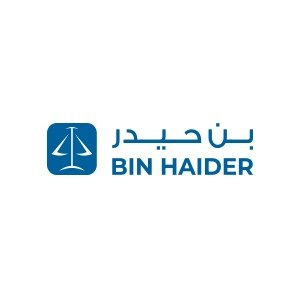Best Water Law Lawyers in United Arab Emirates
Share your needs with us, get contacted by law firms.
Free. Takes 2 min.
Or refine your search by selecting a city:
List of the best lawyers in United Arab Emirates
About Water Law in United Arab Emirates
Water Law in the United Arab Emirates refers to the legal framework that governs the use, management, preservation, and distribution of water resources across the country. As a desert nation with limited freshwater supplies and growing population and industries, the UAE has developed comprehensive regulations aimed at ensuring water security and sustainable use. Water Law in the UAE covers areas such as water rights, conservation efforts, water quality standards, licensing for water extraction, and regulation of both public and private sector activities that impact water resources.
Why You May Need a Lawyer
Legal assistance in Water Law is often sought by individuals or entities facing issues related to water rights, regulatory compliance, or disputes. Common scenarios where a lawyer can be invaluable include:
- Obtaining permits for water extraction from groundwater or other sources
- Navigating compliance with environmental and water quality regulations
- Addressing disputes over water access between neighbors, businesses, or government bodies
- Advising on water use for agricultural, industrial, or real estate development purposes
- Challenging administrative decisions or penalties related to water use
- Understanding obligations under federal and emirate-level water laws
- Protecting interests in the face of infrastructure or municipal projects that may affect water access
Local Laws Overview
In the United Arab Emirates, Water Law is governed by a combination of federal legislation, ministerial decrees, and emirate-level statutes. Key aspects include:
- Federal Law No. 24 of 1999 on the Protection and Development of the Environment, which sets out requirements for the protection of water resources and penalties for pollution
- Extraction and Licensing: Extraction of groundwater and use of surface water requires permits and is regulated to prevent overuse and contamination
- Desalination and Reuse: Regulations encourage innovation in desalination and treated wastewater reuse to ensure water security
- Water Quality Standards: The UAE enforces strict standards for potable (drinking) water, irrigation, and industrial water use, with regular monitoring by governmental bodies
- Conservation Efforts: Public campaigns and legal mandates focus on water conservation in households, agriculture, and industry
- Emirate-Level Authorities: Each emirate has specific agencies and additional laws regulating local water issues, in coordination with federal authorities
Frequently Asked Questions
What is the main government authority regulating water use in the UAE?
At the federal level, the Ministry of Climate Change and Environment oversees water policy, while each emirate has its own regulatory authority, such as the Environment Agency Abu Dhabi or the Dubai Municipality.
Do I need a permit to drill a well or extract groundwater?
Yes, drilling wells or extracting groundwater typically requires a license from the relevant emirate-level authority. Unauthorized drilling can result in significant penalties.
Are there restrictions on water use for agriculture?
Yes, agricultural water use is regulated to ensure efficient use and prevent depletion of groundwater resources. There are strict guidelines for irrigation methods and water sources.
How does the UAE address water pollution?
The UAE enforces strict laws prohibiting the pollution of any water body. Offenders can face fines, shutdowns, and criminal prosecution for violations.
Who owns the water resources in the UAE?
Water resources are considered national assets and are managed by the state. Individual or private rights to water are limited and subject to licensing and regulation.
Can water disputes between neighbors or companies be settled in court?
Yes, water use disputes can be taken to court or administrative tribunals for resolution. Mediation or negotiation is often encouraged before legal proceedings.
Are there rules about the reuse of treated wastewater?
The UAE actively encourages the reuse of treated wastewater, especially for irrigation, landscaping, and industrial purposes, under strict guidelines to ensure safety and quality.
What are the penalties for illegal water use or pollution in the UAE?
Penalties can include hefty fines, suspension of business activities, and potential imprisonment depending on the severity of the violation.
How is drinking water quality regulated?
Drinking water quality is regulated through federal and local standards that set limits for contaminants and require regular testing by licensed providers.
Can foreigners or companies own water rights in the UAE?
Water rights are controlled by the state. Usage rights can be granted through permits or concessions, but outright ownership of water resources is not allowed.
Additional Resources
Those seeking more information or assistance with Water Law issues in the UAE may consult the following resources:
- Ministry of Climate Change and Environment - Primary federal authority for water policy and regulation
- Environment Agency Abu Dhabi - Regulates natural resources and environmental compliance in Abu Dhabi
- Dubai Municipality - Oversees water regulation within the emirate of Dubai
- Federal Environment Agency - Provides reports and data on national water quality and resources
- Licensed Environmental Law Firms - Specialists in navigating Water Law, licensing, and dispute resolution
Next Steps
If you believe you need legal assistance regarding Water Law in the United Arab Emirates, consider the following actions:
- Gather relevant documentation, such as permits, correspondence with authorities, and evidence relating to your issue
- Consult with a lawyer who specializes in UAE Water Law to evaluate your situation and outline your options
- Contact the appropriate local authority or regulatory body for guidance or to confirm regulatory requirements
- If you are already involved in a dispute or facing enforcement action, act promptly to seek legal support, as time limits may apply to certain responses or appeals
Lawzana helps you find the best lawyers and law firms in United Arab Emirates through a curated and pre-screened list of qualified legal professionals. Our platform offers rankings and detailed profiles of attorneys and law firms, allowing you to compare based on practice areas, including Water Law, experience, and client feedback.
Each profile includes a description of the firm's areas of practice, client reviews, team members and partners, year of establishment, spoken languages, office locations, contact information, social media presence, and any published articles or resources. Most firms on our platform speak English and are experienced in both local and international legal matters.
Get a quote from top-rated law firms in United Arab Emirates — quickly, securely, and without unnecessary hassle.
Disclaimer:
The information provided on this page is for general informational purposes only and does not constitute legal advice. While we strive to ensure the accuracy and relevance of the content, legal information may change over time, and interpretations of the law can vary. You should always consult with a qualified legal professional for advice specific to your situation.
We disclaim all liability for actions taken or not taken based on the content of this page. If you believe any information is incorrect or outdated, please contact us, and we will review and update it where appropriate.
Browse water law law firms by city in United Arab Emirates
Refine your search by selecting a city.

















